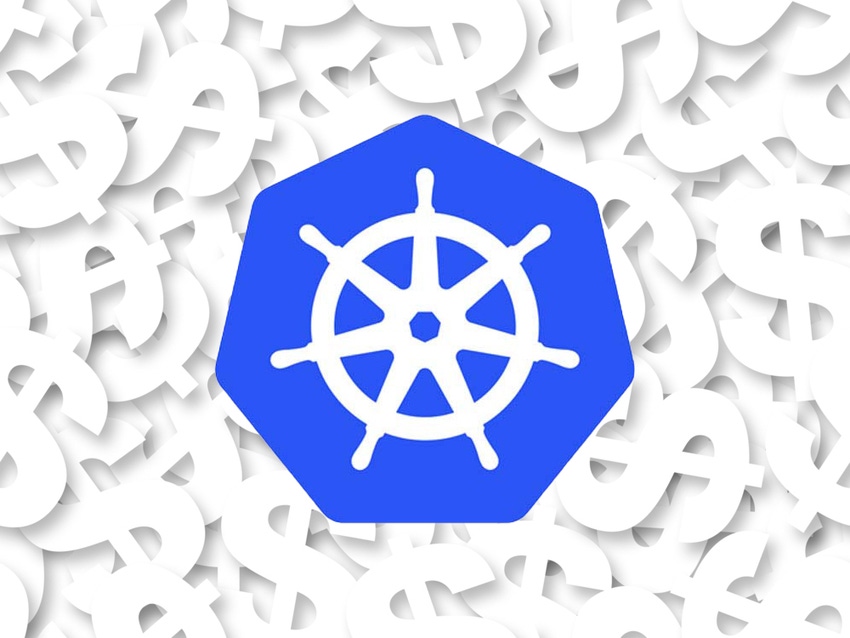The open source container platform continues to grow in popularity and is getting more channel attention, they say.
November 25, 2019

KUBECON CLOUDNATIVECON NORTH AMERICA — In just five years, the Kubernetes container orchestration platform has grown from a Google startup project into an important tool being used by more and more midsized to large businesses to automate the deployment and management of their applications using containers.
That growing popularity has also caught the attention of a wide range of major technology companies, including Oracle and Red Hat, who spoke with Channel Futures about how Kubernetes should be embraced by the channel to drive new services and revenue as customers build out their cloud computing strategies into the future.

Oracle’s Bob Quillin
“Kubernetes provides a way to build and operate a new application architecture that is standard and portable across any cloud because is standards-based and open source,” Bob Quillin, vice president of Oracle’s container group, told Channel Futures at the conference. “It allows you to have flexibility as an organization to run the stack on-premises or in the cloud or using any cloud provider, giving you flexibility combined with technical agility. This is the way that you build or run a new cloud-native application.”
Those qualities make it the de facto platform for application delivery and deployment, which has happened quickly over the last two years, he said. But with that rapid growth, there has also been a shortage of trained and qualified personnel to make the technology work for customers, he added.
That’s where channel partners need to step up to help Oracle and other vendors take Kubernetes to the next level in helping to meet customer requirements for the technology, said Quillin.
“There’s a demand and a huge amount of interest to adopt cloud technologies by organizations and they don’t know how to do it on their own,” he said. “So they’re looking for help that needs to be spread across the ecosystem of partners — from vendors and channel partners that they look to. And if they’re not going find that help with their existing channel partners, they are going to go to another one.”
Oracle’s strategy is to work to make it easier for their customers by providing Kubernetes services that are managed so customers don’t have to be experts in the technology, he said. Oracle can manage the Kubernetes projects for customers, making the technology more approachable for them.
Part of the problem for customers is that there is a very tight market for IT workers with Kubernetes skills, making it hard to take on by themselves, he said.
“We are running Kubernetes for them, but they still have to bring their applications in and know how to do that,” said Quillin. But more channel partners are needed to help companies like Oracle get these benefits out to more potential customers, he said. “We need a broad network of partners and it takes a village to do this.”
And while many of the 12,000 attendees…
…at KubeCon are developers who are getting more Kubernetes training at the event, even they won’t be enough to meet the growing demand for the needed skills, said Quillin. “There’s just not enough event tickets here at KubeCon to train everybody across the world.”
Even with all of the employees at Oracle, it won’t be enough people to do this on their own, said Quillin. “There’s only a few of us comparatively and there’s many more channel partners, so they could be extensions of that effort. We would love to have more evangelism happening and expertise going out to the customers by partners they already know. The bigger the army, the more people we can actually bring on to the cloud and be part of this movement.”

Red Hat’s Julio Tapia
Julio Tapia, the director of partner and community development for Red Hat’s cloud platforms business unit, said he agrees that Kubernetes is taking off with customers and that it’s resulting in more interest from ISVs and other channel partners in response.
“The reason that we’re getting interest from ISVs or systems integrators and other channel companies is because the opportunities are there,” said Tapia. “Customers are coming to us” to ask about it.
Whenever new technologies are launched, companies don’t necessarily get people’s attention at first, he said. Instead, many customers traditionally wait until the market is mature and after other customers have embraced it and deployed it in production.
“We’ve definitely passed that point today,” said Tapia. “We announced that last year that we had surpassed a thousand enterprise customers in production. Partners take notice of that and they’re also getting pinged by many of the same customers. So that’s why they’re interested in becoming part of our ecosystem and offering all these services that we’re talking about.”
Red Hat’s acquisition by IBM earlier this year could also likely help Red Hat partners dive more deeply into Kubernetes and find more business opportunities, said Tapia. “Not only for that customer reach, which we are seeing, but on the partner side there’s a lot of vertical reach they can bring” to new areas where they had not had business in the past. “It’s much more breadth and depth, which for us as a smaller company, we couldn’t do” in the past.
Kubernetes was originally developed by Google in 2014 to manage container sprawl within the company’s own IT infrastructure. A year later, Google donated the technology to the Cloud Native Computing Foundation (CNCF) to continue to grow the open source project. In early 2018, the CNCF “graduated” the Kubernetes project as its first open source software project to move from initial development stages to full-blown project supported by the group.
Since its inception, Kubernetes has been a tool eyed by a large number of enterprises and developers to solve application deployment issues with technology that is standards-based, portable…
…and open source, which gives them a wide range of options for its use. But it isn’t always easy to deploy and run, which has led to a large number of technology vendors coming in to offer their own Kubernetes-based platforms along with services, support and even Kubernetes as a service.
Kubernetes is the latest piece that Oracle sees as a way to help its customers accomplish their business and infrastructure goals as they move to the cloud, Quillin told Channel Futures. “And we are looking to the ecosystem to help us with that — including channel partners who are part and parcel to making us successful, too. There’s money to be made and because there’s such a gap in skills and understanding in the space, if one channel partner is not taking advantage of it, then another channel partner will.”
About the Author(s)
You May Also Like


